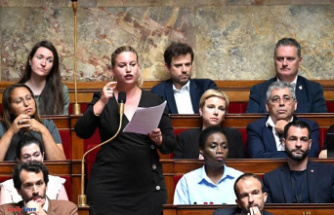Does that annoy you too? Food that is picked up or delivered in the restaurant is in countless plastic packaging that ends up in the garbage when emptied. From 2023 that can change if you want.
From 2023 everyone will have a choice: When taking drinks and food to the restaurant, café or bar, you can decide whether you want disposable or reusable packaging. You can also choose for delivery services and catering.
That hasn't been the case until now. But in the new year there is a duty to offer reusable alternatives for takeaway food and drink as an alternative to single-use packaging made of plastic or with a plastic content. The goal: reduce packaging waste.
This is how the reusable system works:
The reusable tableware is issued against a deposit, which is paid back when you return it. Alternatively, you can also exchange the used crockery for the newly filled one in your favorite café or in your favorite restaurant every time you pick it up.
However, Saskia Erdmann, sustainability expert at the Berlin consumer advice center, advises prompt return. Otherwise, the restaurant will not have the vessels, which will then have to increase its stock. Which ultimately means that more reusable cups have to be produced, which consumes resources and worsens the sustainability of the system.
By the way: There are reusable systems that are used in many shops - and accordingly can also be returned in all of these shops.
Some systems require a deposit, others work with an app-based registration system. The fast-food chain McDonald's, for example, has announced that it will offer its own reusable system with reusable packaging for a two-euro deposit. Burger King, on the other hand, works with a provider of reusable systems, which is why customers can also return their reusable cups to all of these dispensing points. According to the company, each reusable cup should be able to replace up to 1000 disposable cups over the course of its useful life.
Exception: pizza box and aluminum tray
Only plastic packaging is affected. The restaurateurs do not have to offer an alternative to pizza boxes or aluminum trays, according to the consumer advice center in Saxony. And small businesses such as takeaways that have a maximum of five employees and whose sales area is a maximum of 80 square meters are not affected by the obligation. But you have to fill the containers you bring with you, according to the Packaging Act.
Who is the amendment for?
The new obligation must be observed by all those who sell take-away packaging filled with food or drinks to consumers: restaurants, cafés, bistros, but also canteens, petrol stations, supermarkets or catering companies. Exceptions to this are smaller shops such as snack bars, late night shops and kiosks, in which a maximum of five employees work and which at the same time have a shop area of no more than 80 square meters. In these establishments, however, customers have the option of having their food and drinks filled in reusable containers they have brought with them.
According to the Federal Environment Ministry, this exception does not apply to chains such as train station bakeries if more than five employees work in the entire company - even if the sales areas of the individual locations are less than 80 square meters.
Participation brings:
Of course, it sounds complicated at first: Rinse the reusable cups at home, store them, bring them back - instead of simply throwing them away straight away. But you help with the conservation of resources and that is environmental protection.
Incidentally, the fact that reusable cups have to be washed does not change the fact that they are more sustainable than disposable packaging. Although cleaning has a negative impact on the environmental balance, reusable containers are ecologically more advantageous - especially if they are used frequently. This is reported by the project "Climate protection is(s)t reusable". After ten uses, reusable containers performed better in the climate balance than disposable packaging, which is less expensive to produce.












